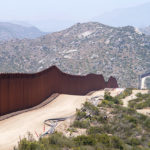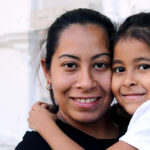
America is becoming more multicultural. How will you respond?
By Helen Gibson
It’s no secret America is becoming more and more multicultural.
The percentage of foreign-born people living in the United States continues to increase, and last year, it reached its highest level in over a century.
This is according to recently released data from the U.S. Census Bureau, which shows the percentage of foreign-born people living in the U.S. reached 13.7 percent in 2017, or 44.5 million people. That’s a slight increase from the year prior when foreign-born people made up 13.5 percent of the population.
Some pastors and church leaders see this as a unique opportunity to share and spread the gospel.
“[It’s] an incredible gospel opportunity,” said Jason Lee, director of The Acts 17 Initiative. “No matter what folks feel about the immigration processes or policy, our call to love our neighbor and share the gospel is what we’ve gotta live out.”
Population shifts
These numbers mark the highest peak in the U.S. foreign-born population since 1910, when 14.7 percent of the population was foreign-born, according to the Census Bureau — and they also highlight some interesting shifts.
[epq-quote align=”align-right”]“We think of immigrants as being low-skilled workers from Latin America, but for recent arrivals that’s much less the case.”[/epq-quote]The Brookings Institution, a public policy think tank, analyzed the data and found that 41 percent of the people who said they immigrated since 2010 came from Asia, while 39 percent of the people who arrived in that time came from Latin America.Additionally, almost half (45 percent) of those who’ve immigrated since 2010 are college-educated, according to the Brookings Institution analysis.
William Frey, a senior demographer for the Brookings Institution, told The New York Times these findings challenge popular beliefs.
“This is quite different from what we had thought,” Frey told The New York Times. “We think of immigrants as being low-skilled workers from Latin America, but for recent arrivals that’s much less the case. People from Asia have overtaken people from Latin America.”
What does this mean for the American church?
Like Jason Lee, Micah Fries sees this as a unique way to reach the nations. The senior pastor of Brainerd Baptist Church in Chattanooga, Tennessee, Fries calls the gradual increase in immigrants and refugees coming to the U.S. “a beautiful and amazing opportunity for the American church.”
A former missionary to West Africa, Fries has seen his 90-year-old Southern Baptist church embrace new opportunities for multiethnic ministry. Each year, they send about 40 mission teams overseas, Fries said, but they’re also working to build relationships with those of different ethnic backgrounds and nationalities living in Chattanooga.
They began doing so through an English as a Second Language (ESL) ministry.
“It started as ESL, but we realized our folks were beginning to develop very deep relationships with them, and they didn’t want to just teach English and move on. They wanted to do more than that,” Fries said.
Brainerd Baptist Church’s ESL ministry developed into what they now call ICC, or International Community Connection. As a part of this ministry, a group of church members meets with around 150 immigrants and refugees each Sunday evening. Together, this group shares meals, learns English, does job training, prepares for job interviews, and assists one another with cultural adjustment.
[epq-quote align=”align-right”]Only 12 percent of evangelicals said their beliefs about immigration were influenced by the Bible.[/epq-quote]This has allowed church members to form close relationships with immigrants and refugees in the Chattanooga area, and it has resulted in growing diversity at Brainerd Baptist Church. Now, the church hosts worship services in four languages each weekend—Spanish, Cambodian, Arabic, and English.Lee has also seen the beauty that comes from ministry to immigrants and refugees.
His The Acts 17 Initiative works to educate and equip evangelical Christians to share the gospel with immigrants and refugees living in their communities.
Lee — who has served as a missionary in Kenya, worked in refugee ministry, and helped expand World Relief — said he started the Acts 17 Initiative after seeing and experiencing a gap between evangelicals’ beliefs about the foreign-born and their biblical call to serve them. He cited a Lifeway Research study from 2015, which found only 12 percent of evangelicals said their beliefs about immigration were influenced by the Bible.
“For us as folks who love God’s Word, [we] saw that as pretty problematic,” Lee said.
The Acts 17 Initiative is based in Clarkston, Georgia — a community just outside of Atlanta that has become a hub for immigrants and refugees, earning it the moniker “the Ellis Island of the South.”
Each year, the Acts 17 Initiative hosts 15-20 week-long mission teams in Clarkston, in addition to weekend or day volunteers, with the goal of helping them realize how they might better engage refugees and immigrants.
“Part of our mission team strategy is to equip them with not only sharing the gospel cross-culturally but also equipping them to understand the refugee process, to understand the complexities of immigration in our country,” Lee said.
By the end of a week, mission teams know the names and the stories of immigrants and refugees, and they’re empowered to advocate on their behalf in a number of ways, Lee said.
He describes their work as a robust call to make disciples amongst the nations, and he says that includes evangelism, conversion, spiritual growth, and living out all of God’s Word. He adds that ministry to immigrants and refugees isn’t just necessary in incredibly diverse cities like Clarkston, but in communities across the country.
“Even in rural communities, there are often unreached people groups that live there—hotel owners, convenience store owners, other immigrants that are also from unreached people groups—and God’s bringing them to our doorsteps,” Lee said.
How to love and engage the foreign-born in your community
When it comes to showing the love of Christ to an immigrant or refugee, Fries suggests it’s really a lot simpler than many make it.
“We overthink this,” Fries said. “We think we need to have classes, training. All of that’s helpful, but the most helpful thing we can do is just be friends with somebody. Have them over to our house for dinner and ask them questions.”
[epq-quote align=”align-right”]The most helpful thing we can do is just be friends with somebody. Have them over to our house for dinner and ask them questions.[/epq-quote]Ask them the types of questions you would ask any newcomer—ask about their job, what people do for fun where they’re from, what they believe about God, Fries suggested. And don’t underestimate the power of hospitality. A simple act like this may be more meaningful than many Americans realize, Fries said.“In most cultures around the world, there’s a much higher premium on hospitality than there is in our culture,” Fries said. “When we invite people into our home, it communicates far more than we’re putting food in your belly. It communicates compassion. It communicates care. It communicates value. It communicates relationship.”
Lee suggests some additional ways American Christians can build relationships and start ministering to foreign-born individuals.
One would be to start an ESL ministry at church or volunteer with a pre-existing ESL ministry.
Lee also recommends reaching out to denominational entities, like a state convention or local association, to learn about other local ethnic ministries that may already be underway.
Both Lee and Fries said there’s value in finding ways to connect with foreign-born individuals and embracing increased cultural and ethnic diversity.
“Anytime our population increasingly looks like the diversity God has made, I think we ought to enjoy that,” Fries said. “A monoethnic—a monocultural—environment is sad to me because it misses out on the beauty of all that God created, and eternity is going to look like a very multiethnic, multicultural environment.”
HELEN GIBSON (@_HelenGibson_) is a freelance writer in Nashville, Tennessee.










